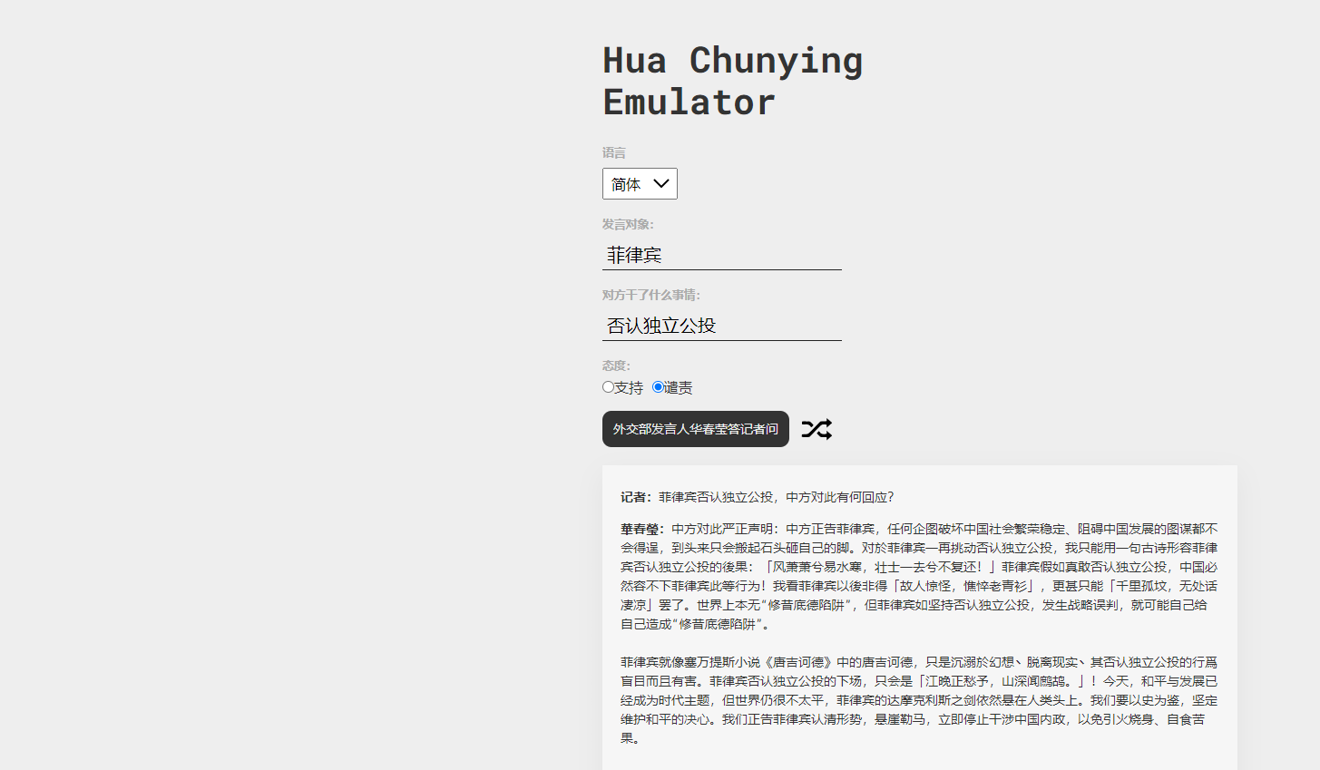
Want to be a Chinese diplomat? Developers have a program that emulates China’s ‘Wolf Warrior’ rhetoric
- Unknown developers have made a program that emulates China’s Foreign Ministry spokeswoman Hua Chunying – in full wolf warrior style
- Chinese diplomats have been taking a more aggressive stance on Twitter amid a range of political and economic flashpoints this year
Amid rising economic tensions with the US and a variety of political flashpoints across the globe, Chinese diplomacy has taken an aggressive turn in the past year.
And those wanting to emulate this tough approach now have help to froth at the mouth – a text generator made by unknown software developers that automatically comes up with praise or condemnation of other countries’ actions by mimicking the tone of past speeches by top officials at China’s Ministry of Foreign Affairs.
It may be just for fun – but this reporter gave it a go, tackling the hot topic of trade.
Reporter: “The Martians have launched a trade protectionism policy. What is China’s response to this?”
Hua Chunying text generator: “The Martians launched a trade protectionism policy to intervene in China’s internal affairs, which seriously violated international law and the basic norms of international relations – a naked act of hegemony.”
Users can also choose the foreign ministry representative to commend the subject’s action – in which case the person or country will no longer be called “treacherous” or scolded for not representing 1.4 billion Chinese people. Instead, the text generator will come forth with flowery praise.
“We are willing to make joint efforts with the Martians to push forward the relations between China and their country for new development and to build a closer community of common destiny in the new era.”

The GitHub page of the developers has been wiped clean. The description of the program, however, says that the emulators were created for entertainment only.
Hua is not the only Chinese official to be simulated with a program from the same developers. Geng Shuang, another spokesman for the Foreign Ministry, received his own emulator in December last year, despite being slightly more reserved on Twitter.
Judging from the latest controversy over the activity of Chinese diplomats on Twitter, perhaps an emulator may be helpful.
Zhao’s tweet was in relation to the Brereton report, a war crimes inquiry dossier released earlier this month, which found that Australian troops had killed civilians in Afghanistan between 2009 and 2013.

